[PHILOSOPHY] In Defense of Cultural Conservatism - Part II
Read part I first: steemit.com/philosophy/@steemswede/philosophy-in-defense-of-cultural-conservatism-part-i
Accepted forms of cultural conservatism
You might have gotten the idea that cultural conservatism is dead from my last article, which is quite far from the truth; in certain cultural areas it's even dominant. Wine connoisseurs can make a career of their carefully trained palate and their knowledge about tradition. Cheap wine is produced and enjoyed in large quantities, but its low rank is implied and does not spoil the experience. But nobody wants to wipe out the clear hierarchy of wines. Wine tasting is considered a worthy form of employment and a noble art with high social status.
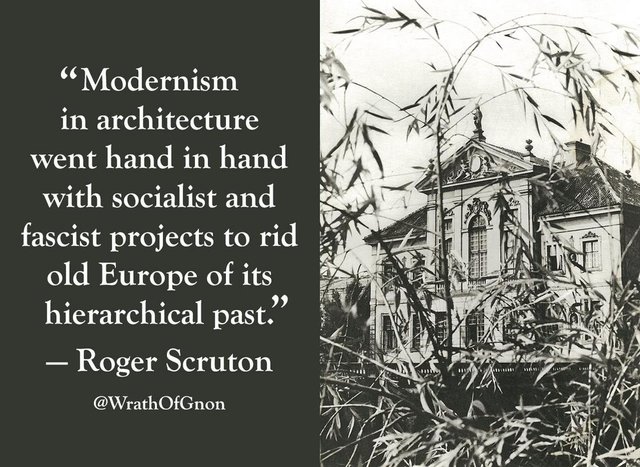
The same applies to cuisine: the local cuisine is valued for its history, traditional dishes are appreciated for their social functions, and they are recreated in on celebratory occasions. Local gastronomic 'dialects', on the other hand, don't challenge an international top layer of gourmet art based on extensive education. There is a widespread desire to 'learn more about food' in the population, and it's generally accepted that the fruits of the culinary elite hangs quite high on the tree of knowledge, without being mocked. Culinary diversity is the result of a respectful attitude towards the cooking discipline.
Most cooks - pragmatic and local - can almost be regarded as folk musicians. The great master chef - deeply rooted in rigid French rules, the eclectic fusion cook or the hyper modern chemical gastronome - all possess a common language that can describe all the dishes. But no one claims that the fusion cook has made the regional and traditional dishes irrelevant. The troubadour and the master singer know their respective 'culinary' genre and each have their own arena. In short, the culinary world is culturally conservative.
A cultural conservative approach is also a characteristic of alternative genres of music: avid rock fans look with great reverence on guitar legends, jazz musicians study recordings from old jam sessions from famous venues.The craft lives on, as in the medieval guilds. The alternative music world consists of parallel hierarchies that have no problems co-existing or collaborating with each other.
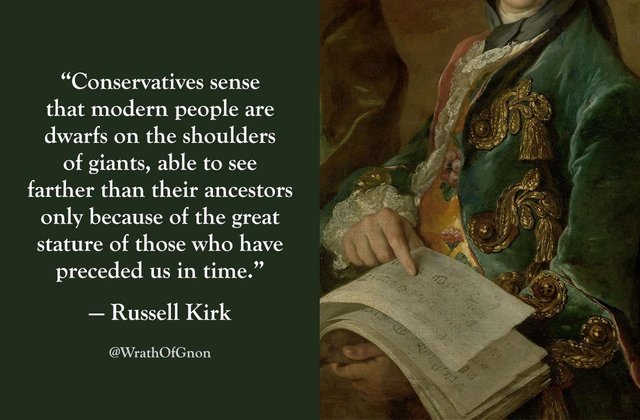
The strange thing is that the alternative music scenes and the world of cuisine have adopted their activities from the bourgeois high culture, while the bourgeois high culture is but pages in history books. The craft-based education has heightened the reputation of jazz, and nobody lifts an eyebrow when jazz musicians refer to authorities within their genre. On the other hand, the figurative painter is looked upon with skepticism when he points to masters of past times.
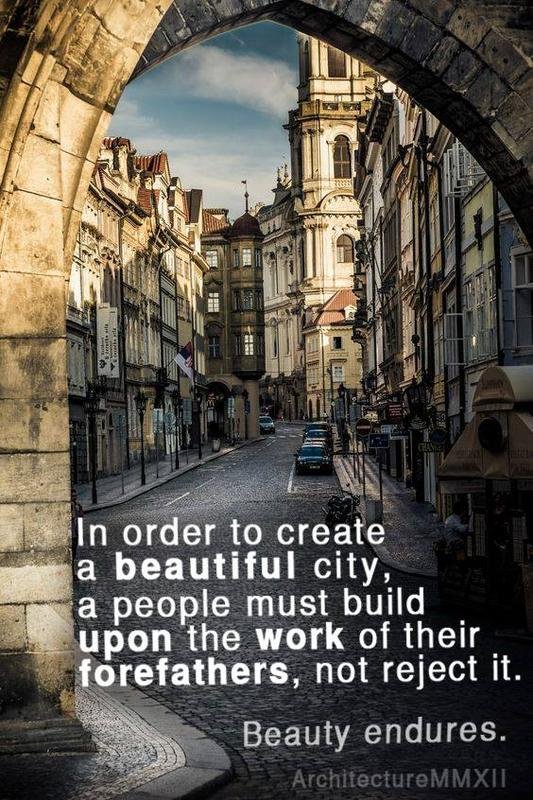
What applies to gastronomy and alternative music genres should be valid for all forms of culture. In the long term, the spirit of a cultivated society can only be safeguarded by responsible management: respect for crafts, recognition of traditions and the pursuit of the beauty and the best qualities in man. The conservative line is the only one actively trying to defend itself against cultural collapse.
Historical relevance
History is the process that creates age and that sorts out. The cultural conservative can be motivated by both attributes, but a genuine defense of cultural conservatism is based on the latter. Certainly, age can alone provide a sense of awe that touches our sentimentality and nostalgia; vulgar graffiti from ancient times preserved under Pompei's ashes seems more touching than doodles in a newly built public toilet, even if the message happens to be the same.
But history also hands out a verdict of forgetfulness. For each classic there are several forgotten works of lower perfection - Shakespeare is remembered at the expense of his contemporary peers, Rembrandt at the expense of his students. Undoubtedly, treasures also have been lost, through coincidence and neglect, as well as through active bowdlerization. However, the greatest loss has certainly been caused by deliberate exemption.
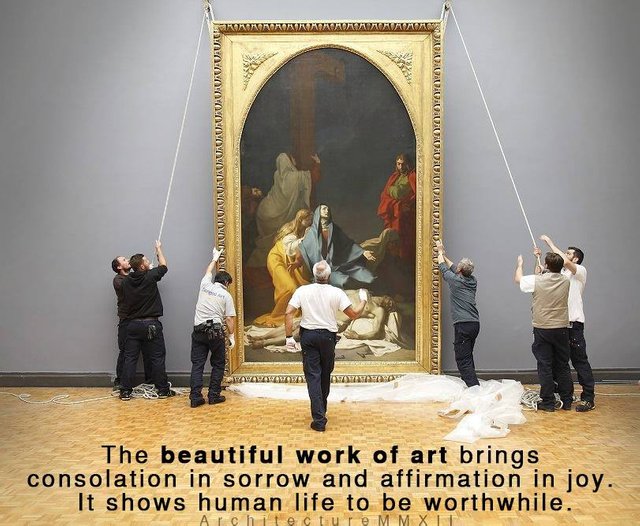
In a superficial assessment of cultural history, one can see an almost evolutionary process where characteristics of individual quality contribute to the survival of the individual works: from ancient times, no poorly written dramas have survived, even though there are plenty evidence of the existence of them; from the Renaissance we have pieces of varying quality, and from the last decades a myriad of horrible art. But, as the term 'of mere historical interest' reveals, it is possible to distinguish between the culture that has survived.
Cultural conservatism for a new era
The culture conservative attitude is in its essence long-term. It does not look back because it wishes to return to an ancient ideal state. It realizes that most of the past has disappeared behind the veil of forgetfulness and therefore tries to learn from what has survived. Cultural conservatism is - as opposed to biological evolution - an evolutionary process with memory.
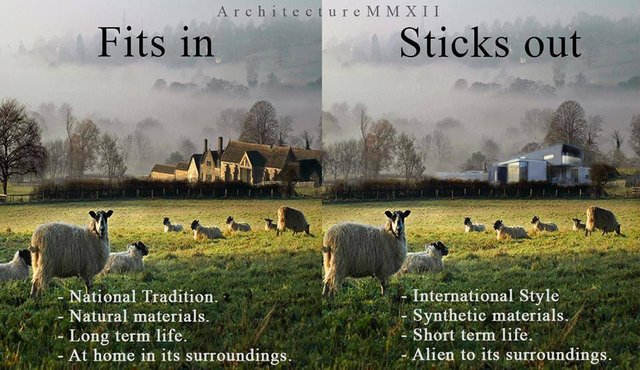
A historical sense is the desire to advance and create tradition; something that hopefully will survive the tooth of time. No other cultural direction looks so far into the future as cultural conservatism. It does not intend to waste the cultural heritage, because it wants to enrich future generations as well.
When we build our cities, regardless of whether we believe in a God or not, we ought to treat it as if God exists and judges the buildings. Look out over a coastal, a forest or an agricultural area, regard it and meditate on the beauty of nature. All cities are a sacrifice of nature. We must have respect and regard for that when we plan and build a city, so that we may think of the beautiful scenery that once existed at the view of a harbor, an office building or a residential area. Then it will be easier to realize the seriousness and responsibility. The city should be characterized by a conscientious endeavor to live up to the beauty of nature as a worthy substitute. Otherwise nature will despair, and we will suffer deep down in our souls from the ugly city.
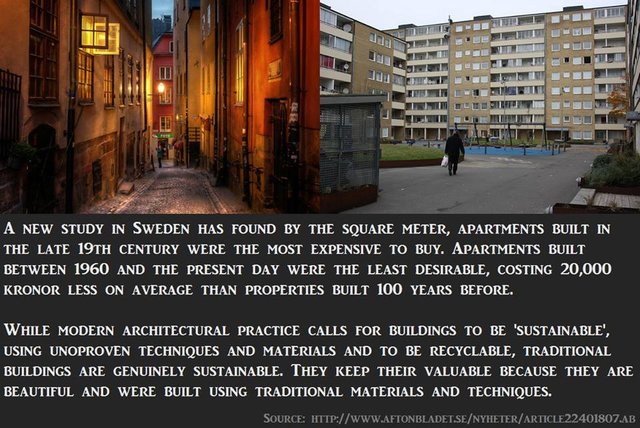
The soul destroying cities we have built since the 1950s aren't worthy of nature's sacrifice and doesn't contribute to human reconciliation with the world. An anti-human monster of utilitarian industrialism, short-term profit thinking and modernist totalitarianism.
Architecture is the most powerful and firm expression of civilization: the buildings are inhabited, used, regarded, passed by. What a population tolerates when it comes to architecture constitutes its spiritual pain threshold. Therefore, modern urban planning is somewhat less ironic than visual arts, less destructive than academic postmodernism. Nevertheless, it has meant an interruption, the end of the traditional art of building, without the promise of a new one.
That fact that the pain threshold doesn't seem to be reached depends solely on the constant survival of the older buildings, which provides oases of harmony and spirituality in the sterile concrete and steel desert. The permanent fingerprints of architecture ought to serve as reminders of the importance of long-term thinking as a builder. Regardless of style and material, the responsible architect puts the civil responsibility first and foremost.

In the shadow of the technocratic buildings, people are forced down into the basement. The jazz and rock club, the fantasy books and art-house film festivals provides an outlet for the melancholy that must exist under the weight of bureaucracy and industrialism, a resort for those who live in the longing for the cultural palace. In the basement there is an opportunity to hide from the anxiety of modern life. But longing is eternal in man, and a cathedral can't be built on alternative rock music.
Out of the shadows
In art we seek the peculiar and unique, that which separates a work of art from a similar. But such a hierarchy is only possible if there's a recognizable form, which makes it possible to draw relationship. If the artistic talent is individual and, ultimately, requires an innate predisposition, it's possible to learn the form.
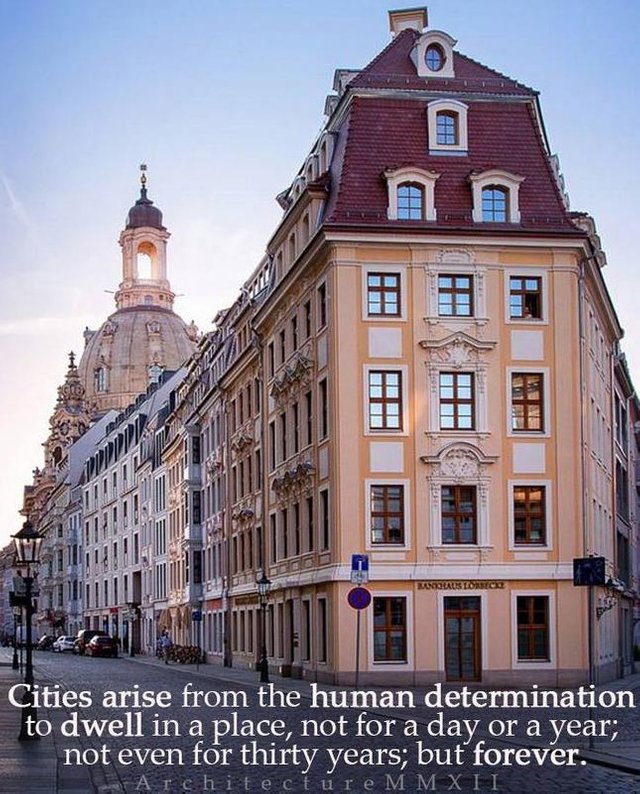
There's an element of cultural conservatism in popular evaluation of art, although it does not always make sense. The work of a virtuoso photorealist painter is admired by the academic 'experts' if it shows a conceptual metaphorical perspective. But the main reason that the artist in question attracts a large audience is that the public is impressed by the technical skill combined with a well-articulated poetic awareness.
Although the audience notices that something is clever and that this is a value in and of itself, the main attraction remains to be this 'old-fashioned' form of appreciation; not in the complicated theory development. The crafts and the diligence is what is valued; it's as if the reverence increases with the amount of hours and insight required to create the work.
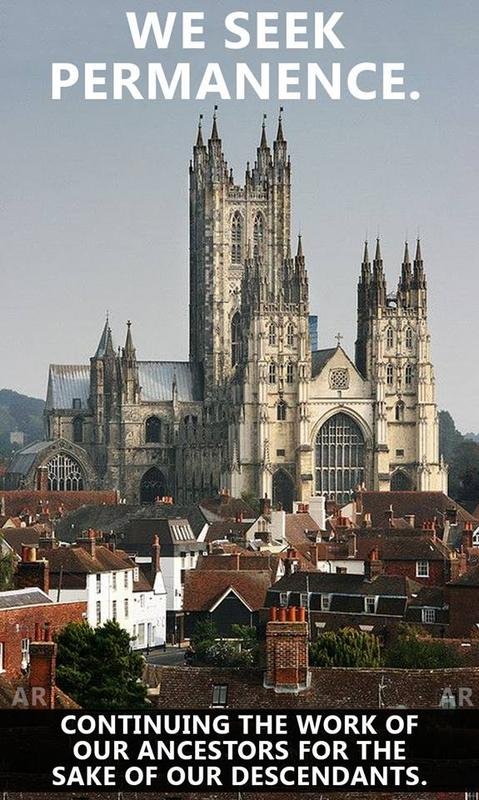
Art should have an intimate relationship with the universal human conditions, the prerequisites of culture should be considered humanistic. Only craft-based art can provide a lasting flame or a flash of genius. The forms are sprung out of tradition; to renounce it is therefore to renounce the possibility of cultural continuity, both backwards and forwards in history. The culture will inevitably be reformed sooner or later, and the changes will not be in the cultural radical direction. Modernism has played its part - shock art is no longer outrageous and postmodernism has nothing left to deconstruct. But we shall not scare away the ghost with new ghosts; we should instead flick the light switch on.
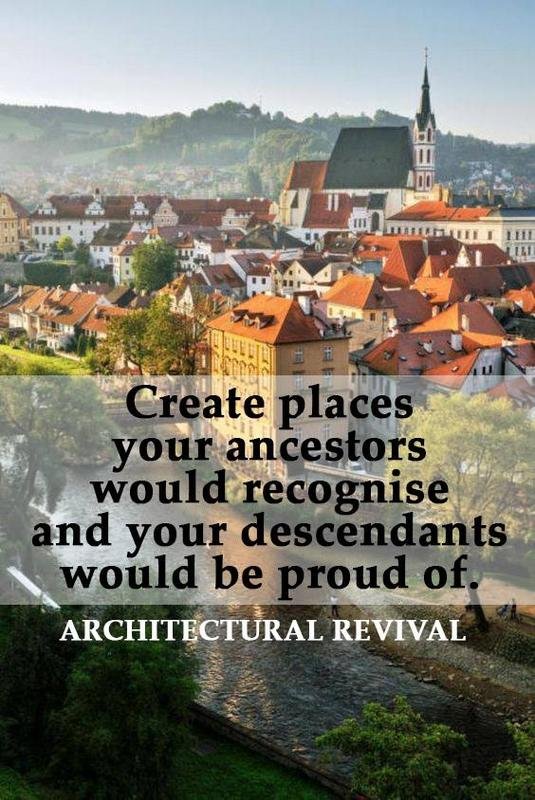
All great culture is a covenant between people; a promise of redemption for human anxiety and longing. But the promise is empty if it's not based on anything real, anything existent and experienced. The visionary reformist is at risk not only to exaggerate the importance of renewal, but also to level the foundation of experience and memory. As a cultural conservative I neither ask that we throw out the baby with the bath water, nor bathe it in dirty water. Then the baby will have many years to look forward to.

Wow, one of the best articles on Steemit to date. Amazing!
You are an eloquent writer. I do not agree with all your statements, I am a sucker for modern art, but you have some valid points and it makes me think :-)
It might be a cliché , but I'm growing more and more conservative the older I get. But yes, opposing modernism as a whole, and especially post-modernism, doesn't mean that I can't appreciate the works of for example Gaugin and Van Gogh. My cultural conservative position is more of a genuine concern of what we are at risk losing if we allow cultural radicalism to stand unchallenged. Thank you for your kind words and for reading @mandibil
grate articles, I am sensitive to this subject, as a young artist trying to find my "voice" I felt many times that skill, technique or beauty for that matter are irrelevant to the art world today
Realism is unoriginal , using beauty to make a lasting impression is somehow wrong while shock it's OK
I'm glad to hear it resonated with you, Alexandra!
Nice article...my is don zakiyamani...nice to know you sir
Congratulations @steemswede, this post is the sixth most rewarded post (based on pending payouts) in the last 12 hours written by a Superuser account holder (accounts that hold between 1 and 10 Mega Vests). The total number of posts by Superuser account holders during this period was 771 and the total pending payments to posts in this category was $3494.67. To see the full list of highest paid posts across all accounts categories, click here.
If you do not wish to receive these messages in future, please reply stop to this comment.
"All cities are a sacrifice of nature," beautiful quote there.
Congrats...This post article was exciting me @steemswede